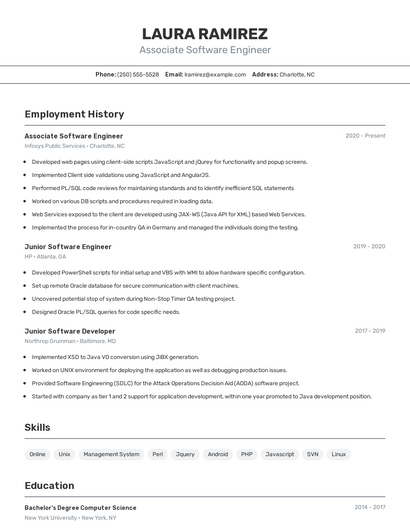
There are some things that you need to know if you plan on becoming a small-business consultant. First, you should register your firm as an LLC. However, before you do that, you should think about your options carefully and seek legal advice. You should also consider the competition in your field. You should be familiar with what they do and how it works.
Benefits
Although many small business owners can do the work themselves, there are times when they might benefit from the help of a consultant. Consultants have different expertise and can help you with various aspects of your company. Consultants can help with branding, marketing, and sustainability.
Consulting services for small businesses are focused on providing support to smaller companies. These companies often lack the skills, time or resources to manage all of their tasks. You can have a consultant bring a wide range of skills to your business and work directly alongside you, for better results. These services are not risky and do not require you to sign long-term contracts. Instead, you could hire a small-business consultant on an hourly fee.

Salary
The salary for a small business consultant is dependent on experience and location. An average Small Business Consultant will earn between $50,000- $99,000 annually. A consultant's educational background, industry experience, and years of work are all factors that can impact the salary.
It doesn't matter if the consultant works freelance or on a retainer. He or she should regularly review their rates. This way, they can be adjusted according to their skills and their clients' needs. Consultants may charge hourly, per project or on a retainer basis.
Education required
A small business consultant can offer an objective, outside perspective on an existing business structure. They can augment and improve existing structures and help businesses overcome common business challenges. Small business consultants need to have a solid understanding of the business models and sectors they work with. They should also have excellent analytical skills. Many education and certification programs are offered to small business consultants.
A business-related discipline is a good choice for students who want to become small business consultants. This includes marketing, accounting, finance, and business management. Business majors may also be eligible to pursue a Master of Business Administration degree. Both these degrees will increase their competitiveness among consulting firms and will give them more knowledge in specific industries.

Job description
A small business consultant is responsible for many tasks, including providing guidance and developing projects. In order to help a company improve its business, the consultant will analyze marketing plans, technical data, and company information. Consultants must be detail-oriented, have strong leadership skills, understand small business challenges and be able to work with others.
A small business consultant has various skills and knowledge that can help a company run more efficiently and grow. They must be able and willing to get along with others and build trusting working relationships. He or she must be skilled in providing solutions and information to clients and customers. They also need experience with insurance and financial information.
FAQ
Can I get a degree as a consultant?
It is best to study a subject well and then practice what you have learned.
Learn how to be a great consultant by studying now!
If you have a degree but no relevant experience, you may struggle to get hired. If you can show that your education is comparable to the job applicants, you may still be eligible for employment.
Employers will always seek out candidates who have real-world experience.
Who hires consultants
Many organizations hire consultants to assist with projects. These include small businesses, large corporations, government agencies, non-profits, education institutions, and universities.
Some consultants work directly for these organisations, while others freelance. The process of hiring depends on the size and complexity the project.
You will likely go through multiple rounds of interviews when hiring consultants before you choose the candidate you feel is the best fit for the job.
How do you get clients for your consultancy business?
It is important to identify an area of passion. You could choose anything from public relations to social media, but it should be something you love. You may need to start small and find a niche market like web design. Once you have discovered the niche, understand what it does. What problems does it solve What problems can it solve? But most importantly, what can you do to help them?
You can also approach businesses directly.
If all else fails, why not offer your services at free events like networking evenings and conferences? You will meet potential customers and be able show your skills without having to spend money advertising.
Statistics
- Over 50% of consultants get their first consulting client through a referral from their network. (consultingsuccess.com)
- Over 62% of consultants were dissatisfied with their former jobs before starting their consulting business. (consultingsuccess.com)
- So, if you help your clients increase their sales by 33%, then use a word like “revolution” instead of “increase.” (consultingsuccess.com)
- "From there, I told them my rates were going up 25%, this is the new hourly rate, and every single one of them said 'done, fine.' (nerdwallet.com)
- According to IBISWorld, revenues in the consulting industry will exceed $261 billion in 2020. (nerdwallet.com)
External Links
How To
How do you find the best consultant?
The first thing to do when looking for a new consultant is to ask yourself what you want from him/her. You should know exactly what your expectations are before you start searching for someone. A list of what you expect from a consultant is helpful. These could include professional expertise, technical skills and project management abilities, communication skills, availability, and other things. You might also want to talk with colleagues or friends about their recommendations. Ask them what their experience with consultants was like and how they compare to yours. Research online if you don’t already have recommendations. Many websites allow people to post reviews about their work experience, including Angie's List and Indeed. Use the feedback and ratings of others as a starting point to search for potential candidates. Once you have a shortlist, be sure to contact potential candidates directly to schedule an interview. During the interview, you should talk through your requirements and ask them to explain how they can help you achieve those goals. It doesn't matter if they were recommended to your company; all that matters is that they are able to understand your business goals and show how they can help.